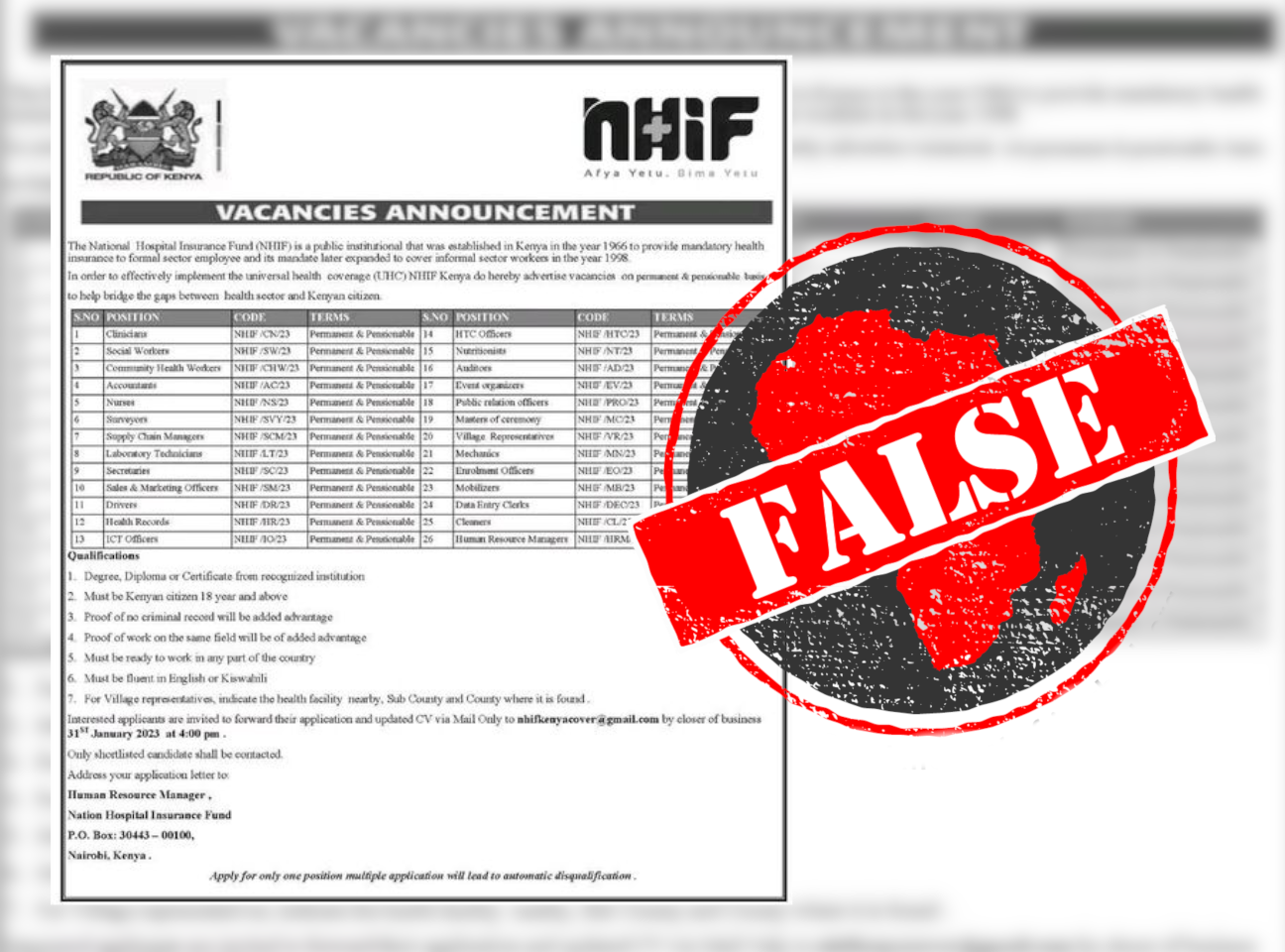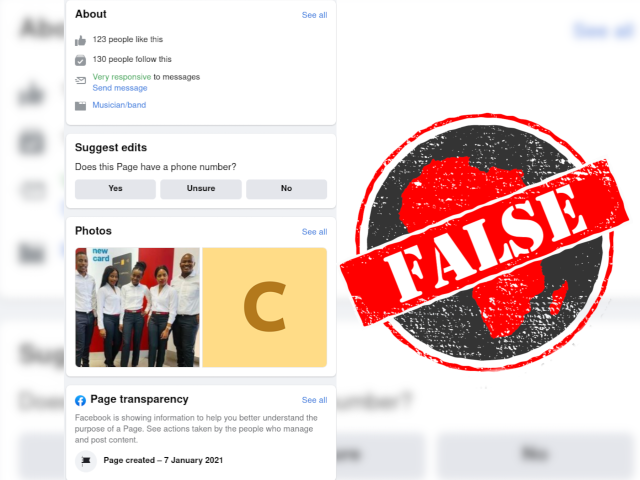IN SHORT: The National Hospital Insurance Fund’s national reach makes jobs there sought after. But a recruitment ad circulating on social media, using the fund’s name, is fake and probably a scam.
An advert offering permanent and pensionable jobs at Kenya’s National Hospital Insurance Fund (NHIF) has been posted on Facebook.
All Kenyans 18 years and older who earn more than KSh1,000 a month are eligible for membership of the state-owned health insurance provider.
The ad, which looks like a screenshot of a newspaper placing, claims that the jobs will help bridge the gap between the health sector and Kenyan citizens.
The available openings include clinicians, social and community health workers, accountants, laboratory technicians, human resource managers and ICT officers.
The advert also lists the requirements for interested candidates, including nationality and educational qualifications.
The ad has also been posted here and here. But is it legit?

If it’s not on the website, it’s not official
There are several red flags. The ad has grammar mistakes that would be uncharacteristic of a document from a governmental institution.
These include “a public institutional”, “NHIF do hereby advertise” and “by closer of business”.
Another flag is the Gmail address given for applications. A major state agency would not use Gmail. An online search shows the email addresses for the NHIF usually end with @nhif.or.ke.
On its official Twitter account, the NHIF has urged the public to ignore the job advert, calling it “FAKE”.
Hello dear Kenyans. We are not hiring at the moment. Kindly ignore this message circulating on social media and other digital platforms. Kindly also note, if a job advertisement is not on our website, it is not official. pic.twitter.com/h00HBfE6St
— NHIF Kenya (@nhifkenya) January 25, 2023
“Hello dear Kenyans. We are not hiring at the moment. Kindly ignore this message circulating on social media and other digital platforms,” the tweet reads.
“Kindly also note, if a job advertisement is not on our website, it is not official.”
The agency is a popular target of people trying to scam desperate job applicants.
Republish our content for free
For publishers: what to do if your post is rated false
A fact-checker has rated your Facebook or Instagram post as “false”, “altered”, “partly false” or “missing context”. This could have serious consequences. What do you do?
Click on our guide for the steps you should follow.
Publishers guideAfrica Check teams up with Facebook
Africa Check is a partner in Meta's third-party fact-checking programme to help stop the spread of false information on social media.
The content we rate as “false” will be downgraded on Facebook and Instagram. This means fewer people will see it.
You can also help identify false information on Facebook. This guide explains how.



Add new comment